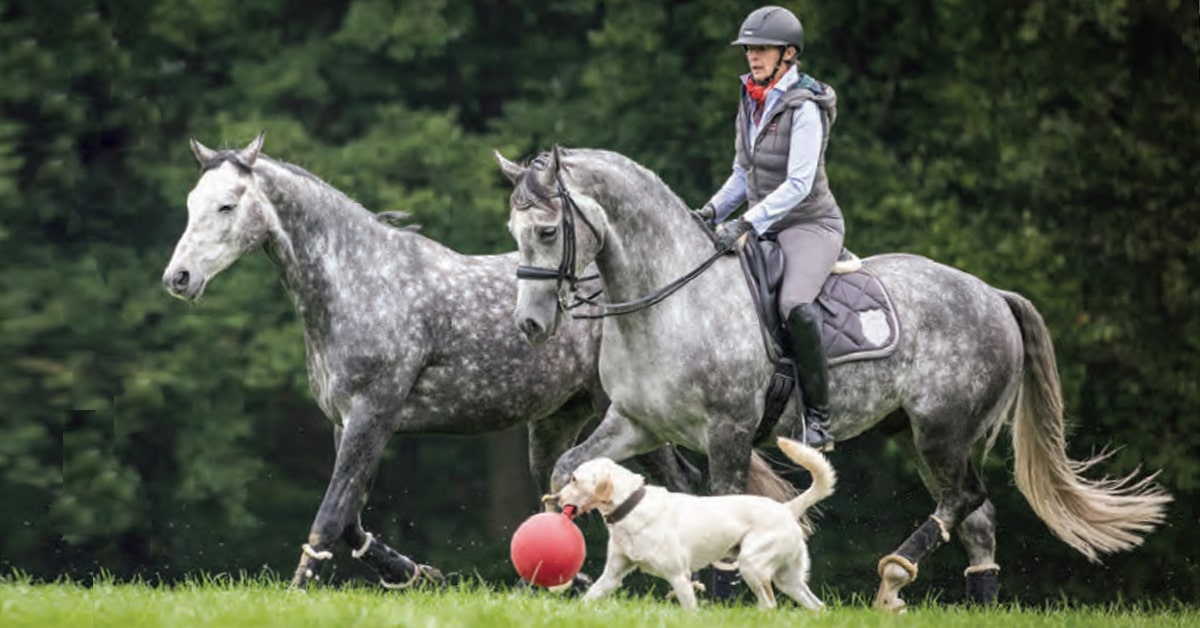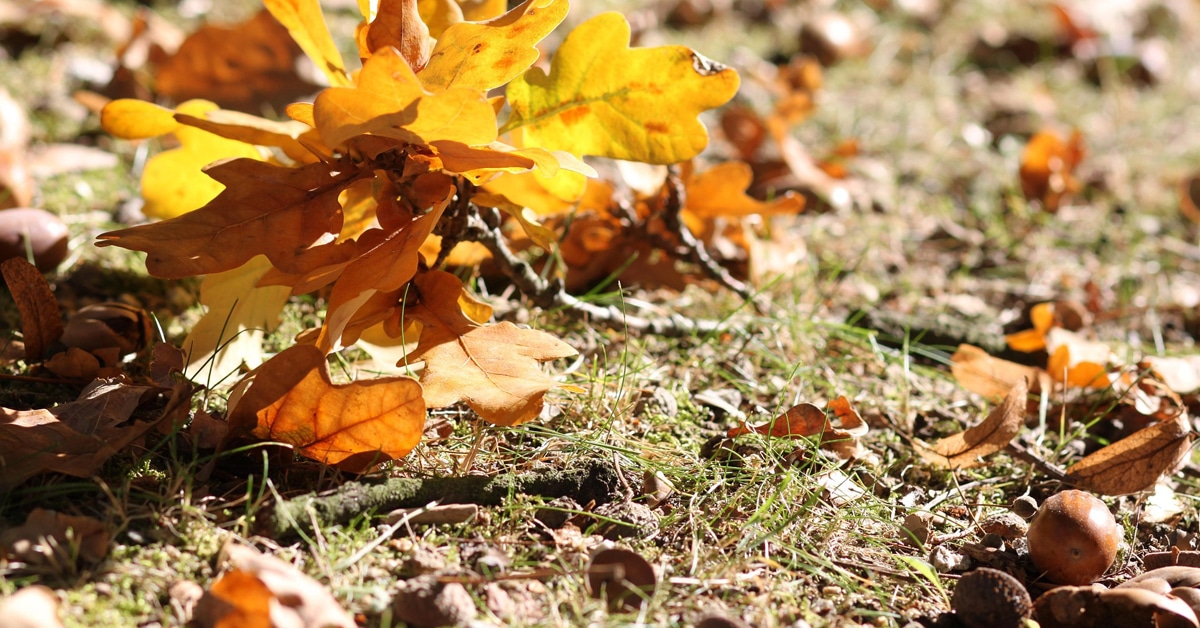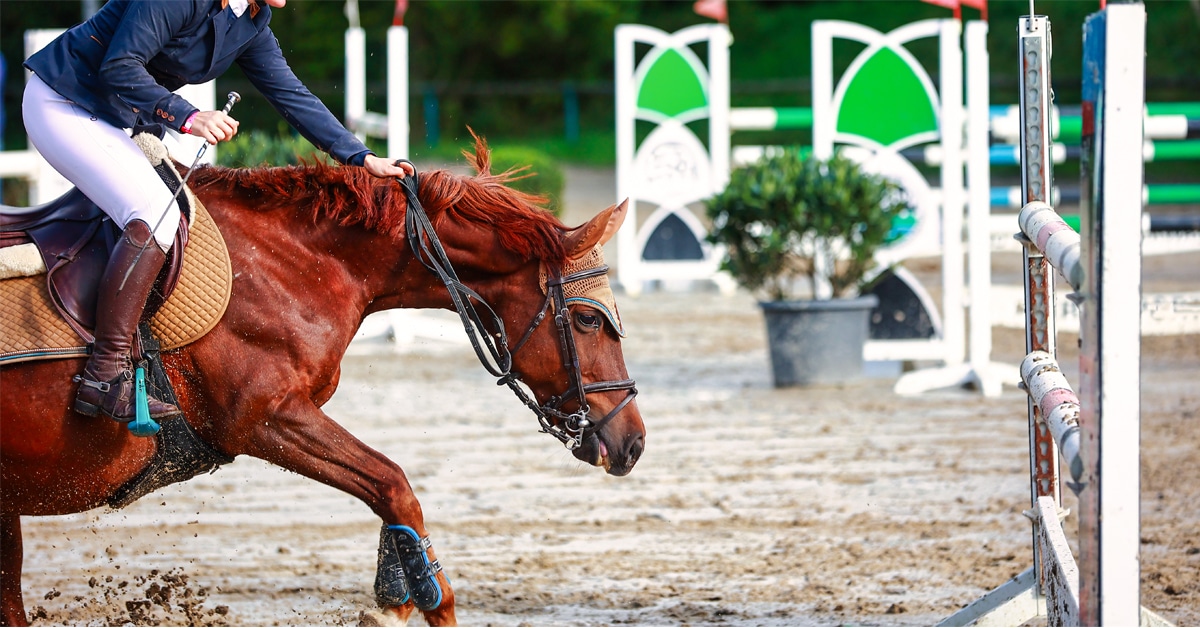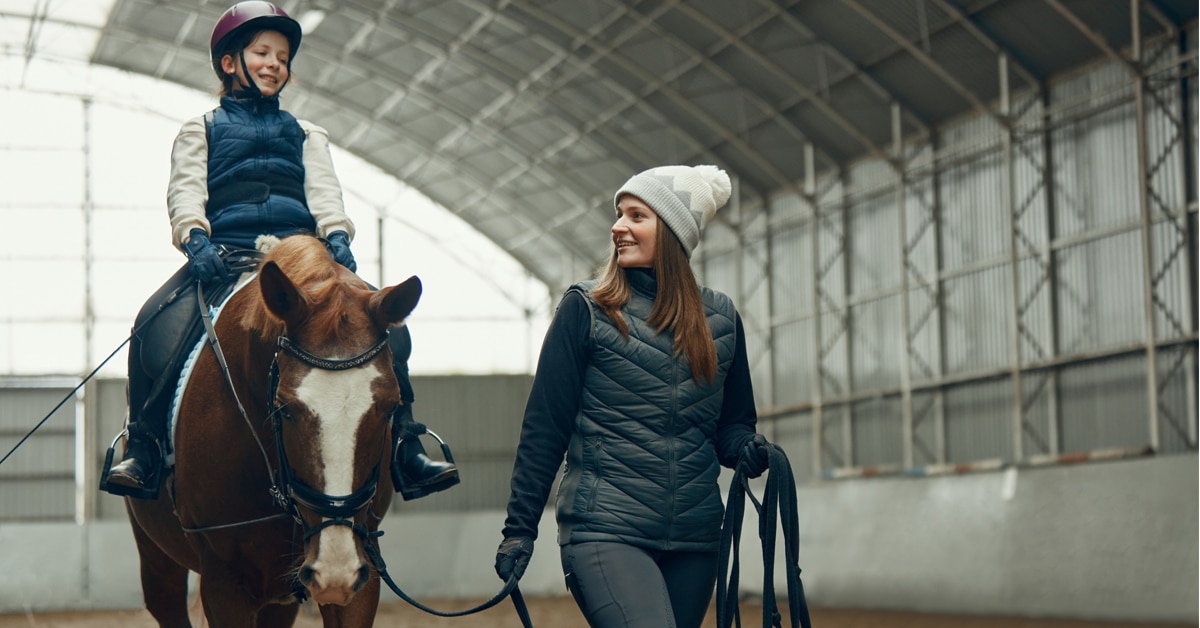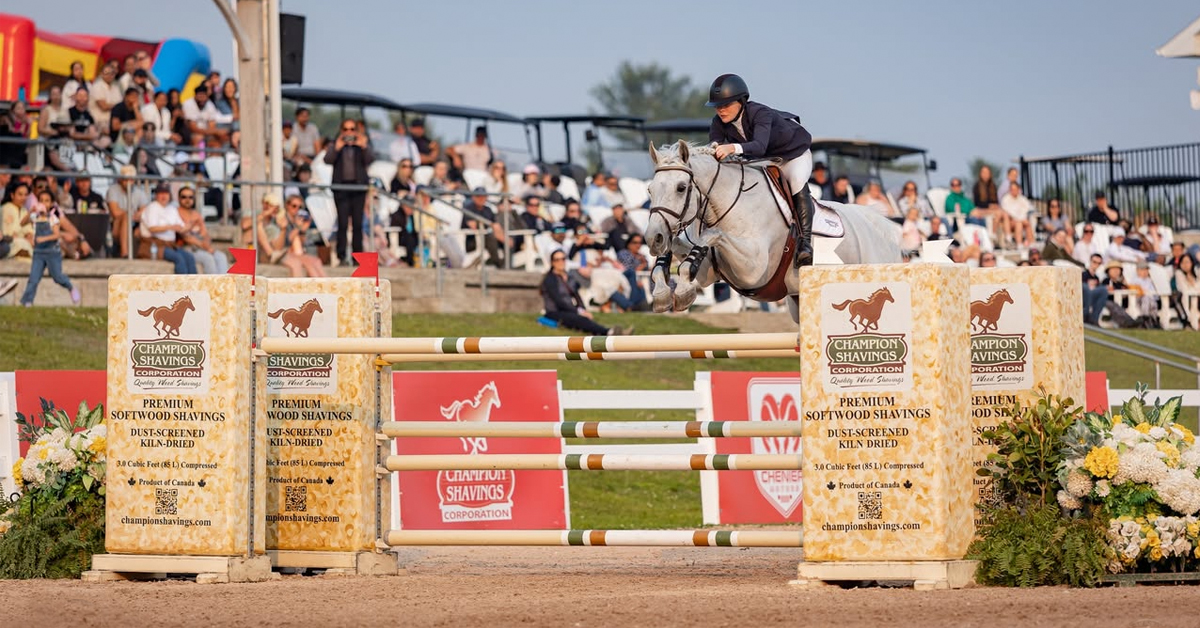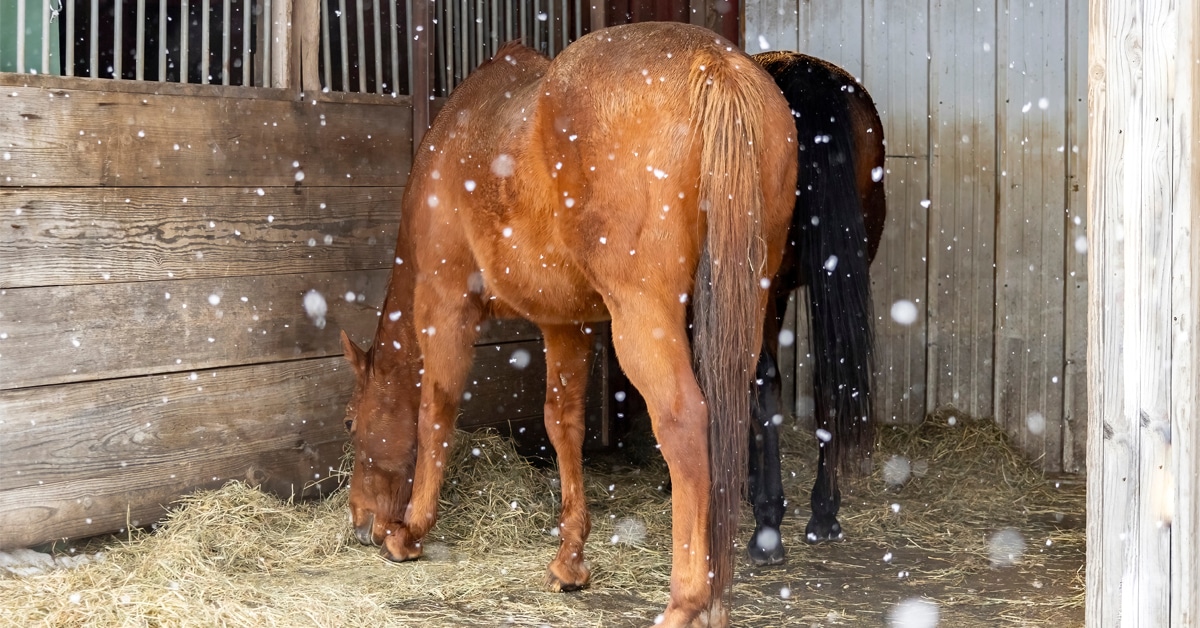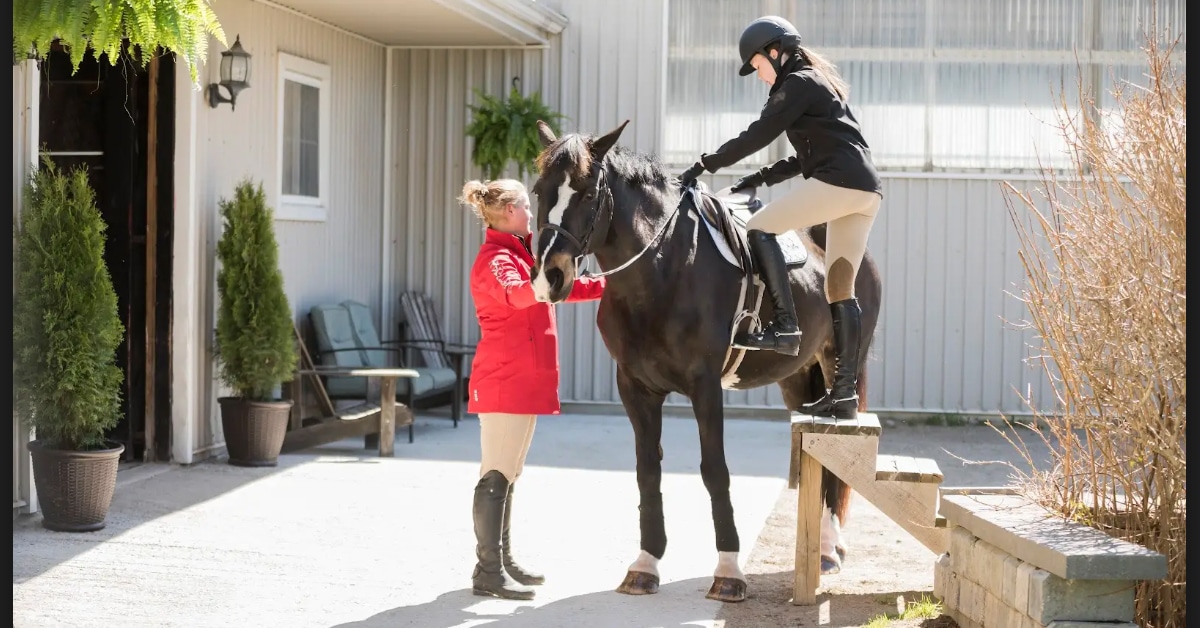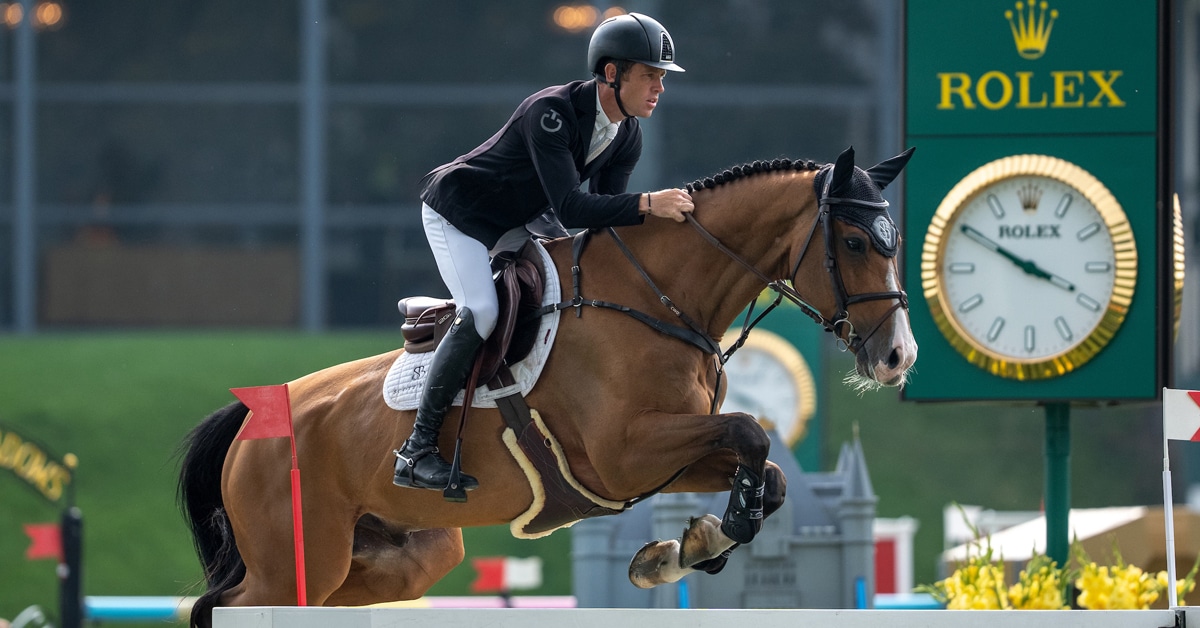How did you become involved in show jumping?
ZA: I used to race Formula Fords and Formula Russells when I was at Pepperdine University in California and when I couldn’t renew my license for medical reasons I had to find something else with thrill and adrenaline. That’s when I started riding since you don’t have to have a license for that!
Who did you go to in order to make this rather dramatic sporting transition into show jumping?
ZA: I trained with Bernie and Christine Traurig for about five years and I attribute a lot of what I have learned about the sport, about horsemanship and about riding to them. They really taught me everything about the sport from the ground up.
When you started riding with Bernie was it just for the fun of it? Did you have goal?
ZA: I started with the hope of representing Saudi Arabia in international competition – that was the goal – at least in my own mind – it was a mad idea!
But why show jumping? Why not any other sport?
ZA: That’s a great question. I’ll tell you why. The thought came to me that horses were really important to our heritage, to our culture and for many thousands of years. Obviously, somehow we had been bypassed as sportsman in the equestrian world. I started questioning this. Why? Was there any reason for it? So I thought to take on the challenge and see how far I could take it; to prove to myself and the rest of the world that there’s no reason why the world should be better at this sport than we are or that we couldn’t be better than the rest of the world. So that’s really the truth of how it started. I wanted to prove that I could be as good a show jumper as anyone else from any other country.
When did ‘I’ become ‘we’?
ZA: Well, Bernie and I were going to shows but because a Saudi Arabia equestrian federation didn’t exist, I couldn’t get anywhere internationally. First we had to have a national federation, then we had to become a member of the FEI – so the challenges were from every direction. So, the whole thing started from scratch. I approached Prince Faisal (who I didn’t know at the time) and he took the idea to the King, who was the Crown Prince at the time, and he ordered that a national federation should be established. It took about three years to work through the system and the bureaucracy. During this time Prince Faisal (bin Abdallah bin Mohammed al-Saud, Saudi Arabia’s Minister of Education and the Saudi Equestrian Federation’s founding president) introduced me to Kamal (Bahamdan) who was studying at Boston University. He flew out to the west coast to meet with me and that summer he brought his horse and we started riding together. Around the same time I met Khaled (Al Eid) and he came to California to train with Bernie too. A year or so after that we went to Saudi where Bernie held a clinic for young riders and we spotted Ramzy (Al Duhami). So we became the four musketeers.
So now you had a team and a National Federation; what was the plan?
ZA: To go to the Olympics and prove ourselves on the world’s stage. We’ve done very well for a little fish in a big pond, especially considering we are, forgive me, the new kids on the block.
So it was you who sewed the seed that eventually led to an individual bronze medal in Sydney; an individual silver at the world championships in Kentucky and a team bronze medal in London?
ZA: ….Yes (hesitantly)…with the backing of the enthusiastic and visionary Prince Faisal.
After assembling a team, you left to pursue a successful career in property development. What brought you back into the fold?
ZA: When Saudi Equestrian came about I was asked to run the program by Prince Faisal who is Chairman of the Saudi Equestrian Fund board of trustees.
What’s the relationship between the Saudi Equestrian Federation, Saudi Equestrian and Saudi Equestrian Fund?
ZA: The best way to explain it is to use the United States Equestrian Federation and the United States Equestrian Team, as an example. The federation is the administrative body and the USET organizes everything for the team. Our inspiration was the US model – we just made a few tweaks to suit our purpose. The Saudi Equestrian Fund (created in 2009 by HM King Abdullah bin Abdulaziz) is an entirely separate entity to the Saudi Equestrian Federation. The Fund supports the national show jumping team, Saudi Equestrian. And, of course, now also, the Furusiyya Nations Cup.
Why did the Saudi Royal Family choose to invest in show jumping when they could have chosen to support any Olympic sport?
ZA: As I said before, horses are ingrained in us; they are part of our heritage. Riding comes naturally to us. Like Bernie used to tell us: ‘guys, it must be in your DNA!’. I believe a few years ago they discovered artifacts related to horses in Saudi Arabia that were 9000 years old; that’s thousands of years that horses have been part of us and us part of horses. Saudi is the last modern country to be unified by horseback – that’s another connection.
How did the Saudi Equestrian Fund go from being a funding/support group for the Saudi team to becoming multimillion euro Nations Cup sponsors?
ZA: When the FEI approached the Saudi Equestrian Fund towards the end of 2011, it was recognized that the FEI Nations Cup, as it existed then, was not sustainable. A new approach was needed, and both the Board of Trustees of the Saudi Equestrian Fund, and the FEI agreed that a new formula which was fully inclusive and which would give every competing nation an equal opportunity was the only way forward. Developing equestrian sport on a global level, but importantly making it inclusive for emerging nations, was integral to our involvement in the FEI’s vision; it was something that we felt we could add value and contribute to.
What benefit does the Saudi Equestrian Fund derive from its 4 million euro a year investment in the Nations Cup?
ZA: The Saudi Equestrian Fund has chosen Furusiyya as a brand name to represent it as the face of the FEI Nations Cup sponsorship deal. The term Furusiyya holds significant value in Saudi Arabia and many parts of the Middle East, and it ultimately defines the important relationship between horse and rider. Through its sponsorship of the FEI Nations Cup, the Saudi Equestrian Fund now has a substantial platform to promote Furusiyya not only to the Western world, but also to a global audience. The FEI Nations Cup sponsorship has provided the Saudi Equestrian Fund with a golden opportunity to educate people about Arabian culture through the medium of show jumping, which is something we are really proud of.
Are you pleased with the direction the remodeled Nations Cup is going?
ZA: On face value the Nations Cup was very hard to get into for countries outside Europe. We found it difficult, even the world powers like the US and Canada and Brazil found it difficult. So the goal became to make it open and available for every country so that over time the sport could grow and become more popular all over the world. Take Formula One – it used to be largely confined to Europe; now look at it – there are Grands Prix all around the world.
Are you the Bernie Ecclestone of show jumping then?
ZA: No (laughing) that would be the FEI. You have to give the FEI a lot of credit for having the vision and the will power to make the changes; especially Princess Haya who had the foresight and drive to see it through.
Do you think that the new formula is what is required to achieve your objectives?
ZA: It’s a bit early to say, but I have to be encouraged by the facts that in the first year 39 countries signed up to compete in the series and 22 countries are holding qualifiers. We have 18 countries competing in the Final in Barcelona; that’s two more than in the Olympics. It’s actually a great honor when you look at it. We’re very excited to be a part of this catalyst for the sport. Instead of being exclusive the Nations Cup is now inclusive.
About the same time you announced the sponsorship of the Nations Cup, two of your riders were suspended by the FEI Tribunal for medication control violations. That must have been an interesting time?
ZA: It was an emotional rollercoaster ride that’s for sure. I had a lot of faith in my riders; I know them so well; for over twenty years. I know their essence; I know what they are made of and how they think and I know it was not something they would do. I think the stakes are too high in today’s world and everyone knows the rules. It was an unfortunate situation but we went through the process with the FEI which of course had its difficulties too. On top of that, we had the unfortunate injury to Presley Boy just before the Olympics. It was all really very emotional. I give a lot of credit to the guys who kept their focus and stayed on target even though we had these hurricane storms hitting us. We went along, we kept our unity. Everybody helping each other. We are a very strong, very unique unit.
The Latest
